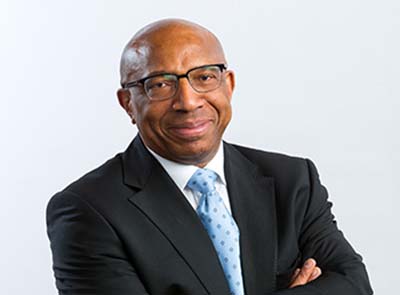Kathy Gibson reports from AfricaCom in Cape Town – Telecommunications operators need to collaborate with one another, with suppliers and with device manufacturers to bring high connectivity costs down.
This is the word from Telkom Group CEO Sipho Maseko, addressing the third meeting of the CEO’s Broadband Initiative of Southern Africa (CBI4SA) held alongside AfricaCom today, and hosted by Huawei.
“There has been a movement to reduce the cost to communicate,” Maseko says. “And in my view, the telecommunications companies have not managed that propaganda well.”
What has been lost in the discussions is the fact that the telecommunications ecosystem is not just about connectivity, but includes devices, services and more, Maseko points out.
“But there hasn’t been a unified approach. The telcos need to ensure we are not the ones that get the short end of the stick; and the device manufacturers should also be involved.”
The cost per megabyte for data is coming down, Maseko says, but the telcos are still the ones blamed when people talk about access costs.
“We should work a lot closer with the OEMs to get the whole ecosystem to be singularly lighter in a cohesive response to reduced costs,” he says.
On a broader scale, infrastructure and access costs could be significantly reduced if the telcos in the region work together to harmonise, Maseko believes.
“We need to think about policy and interconnection in a converged environment,” he says. “Whether the network is fixed or wireless is academic – people don’t care; it must be stable, working, affordable and super-fast.
“We need to ensure that as technologies converge, how do policies, standard and regulations accommodate a converging technology platform.”
Maseko explains that in a distressed economy – South Africa expects close to zero growth this year, but inflation of 6% – telcos have to respond.
“There is a twin challenge in that we need to create jobs while ensuring that our economies are more inclusive and integrated.
“Large amounts of capital need to be spent to modernise networks. We can’t not invest because we will be left behind; but the investment needs to be a framework that is viable and justifiable.
“So we need to collaborate, to standardise, to procure together, to have one conversation with our OEMs to make the burden more bearable.”
Collaboration between regional telcos is still at a planning stage, but Maseko believes it is an economic imperative.
“We want to ensure that we can leverage scale, and also drive standardisation.”
The alignment of standards and processes can play a huge role in driving down costs, through better efficiencies, lower unit costs and even the possibility of bringing manufacturing back to the continent.
The need for standards should probably be incorporated into the industry’s policy documents, Maseko adds.
“It’s a very important element, and it’s not just about efficiency of procurement, but plays a role if the sub-continent is serious about industrialisation.
“The more we can standardise the more opportunity we have to create an industrial state, and not send dollars offshore.
“So this not even just about telecommunications; it’s about how we can play an enabling role in the re-industrialisation of the country and the region as a whole.”
Mokgethi Nyatseng, CEO of BTCL and chairman of the Southern African Telecommunications Association (SATA), believes there is a need to re-invent the telco business model, to look beyond the traditional way of doing business.
“We need to accelerate beyond broadband services,” he says. “And there is a need to learn new ways of working in the new ecosystems so that we can accelerate digital strategies and opportunities.”
This will require investment to stay ahead of the technology curve and meet customer needs, Nyatseng says.
“We need to thing about how products and services will be created and managed.
“Let’s embrace collaborative efforts, strengthen partnerships to allow the ability to accelerate the development of broadband infrastructure services and solutions for the benefit of citizens.”

